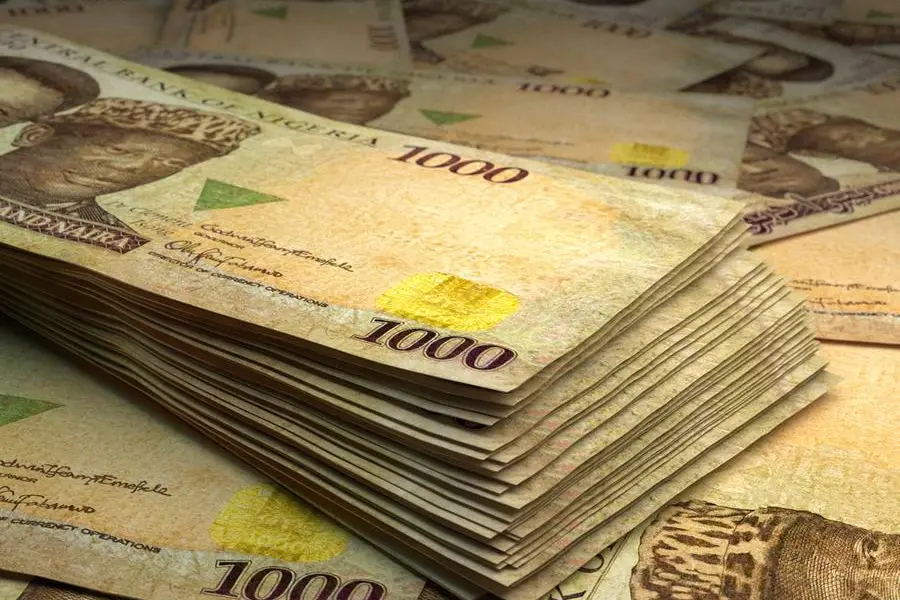PHOTO
Nigeria’s foreign exchange reserves, a once-robust bulwark against economic shocks, have dwindled by $3.8 billion, which is around 10.2 percent in recent months, to $33.31 billion.
This is based on data obtained from the website of the Central Bank of Nigeria (CBN) between January and October (October 25) of 2023.
Nigerian Tribune analysis shows that this is the lowest level for the reserve since July 2021 when it hit a low of $33.09 billion.
Related PostsSupreme Court verdict: Team up with Tinubu for good governance, Olubadan urges Atiku, Obi Morgan Stanley to reclassify Nigeria indexes from frontier to standalone markets statusFCMB bags Agribusiness Investment award
Experts from Cowry Assets Management Limited said Nigeria’s inability to reap from the windfall that hit the global oil market, following the geopolitical unrest in the east of Europe since February of 2022 has taken a toll on the economy as well as the lack of dollar liquidity within the central bank’s vault to defend the naira.
This, however, has led to the apex bank relying on the reserves for its continued defense of the local currency in the foreign exchange market.
“Thus, we can say that the steady decline in gross official reserves, coupled with FX liquidity constraints has resulted in a weakening of investor confidence and a general loss of appetite by the offshore community.
“Notwithstanding, we can point fingers to a number of factors behind this decline. One is the rising cost of imports, driven by factors such as the war in Ukraine and supply chain disruptions,” the experts stated.
But a first glance at the total reserves as of mid-October 2023 portends that it can cover about eight months of merchandise import on the basis of the balance of payments for the 12 months to December 2022 and almost seven months when services are added.
Meanwhile, FMDQ’s data shows that monthly transactions on the Investors’ and Exporters’ (I&E) FX window for nine months 2023 are currently running at an average of $2.1 billion, compared with $2.4 billion over the comparable period of 2022.
In August 2023, JP Morgan, a significant player in managing Nigeria’s external reserves, released a report that offered insights into the country’s net reserve position.
According to their estimations, Nigeria’s net reserve position was approximately $3.7 billion.
This calculation was arrived at by adjusting the gross reserve figure at the end of 2022, which was $37 billion, to account for several factors.
JP Morgan estimated that outstanding off-balance sheet swaps amounted to $21 billion. These swaps likely represent financial arrangements or agreements between the Central Bank of Nigeria (CBN) and various entities, which impact the actual net reserve position.
It also noted that an estimated $7 billion in on-balance sheet FX forwards were considered in the calculation. These forward contracts may involve commitments to exchange currencies at specified future dates, affecting the overall reserve position.
Also, securities lending obligations of $5.5 billion were factored in. This suggests that the CBN may have engaged in securities lending activities, potentially impacting the reserve position.
According to Cowry Assets Management, it is worth noting that the report also mentioned that the swap data was consistent with an estimated non-public figure for outstanding Open Market Operations (OMO) obligations issued by the CBN to Nigerian banks and other financial institutions.
This figure was stated as N9.8 trillion, which is approximately $21.2 billion when converted. These OMO obligations likely played a significant role in the adjustments made to the gross reserve numbers.
“In Cowry Research’s view, Nigeria’s foreign exchange reserves, while not at the peak, have indeed sparked concerns regarding the nation’s capacity to fulfill import requirements and meet its debt obligations.
“It is worth noting that despite the recent decline, Nigeria’s foreign exchange reserves are still in a relatively robust position, equivalent to covering approximately 4.4 months of current external payments and Cowry Research thinks that it underscores the need for prudent management of these reserves to ensure the country’s economic stability and its ability to meet liquidity demand and naira defense,” the analysts stated.
Copyright © 2022 Nigerian Tribune Provided by SyndiGate Media Inc. (Syndigate.info).





















